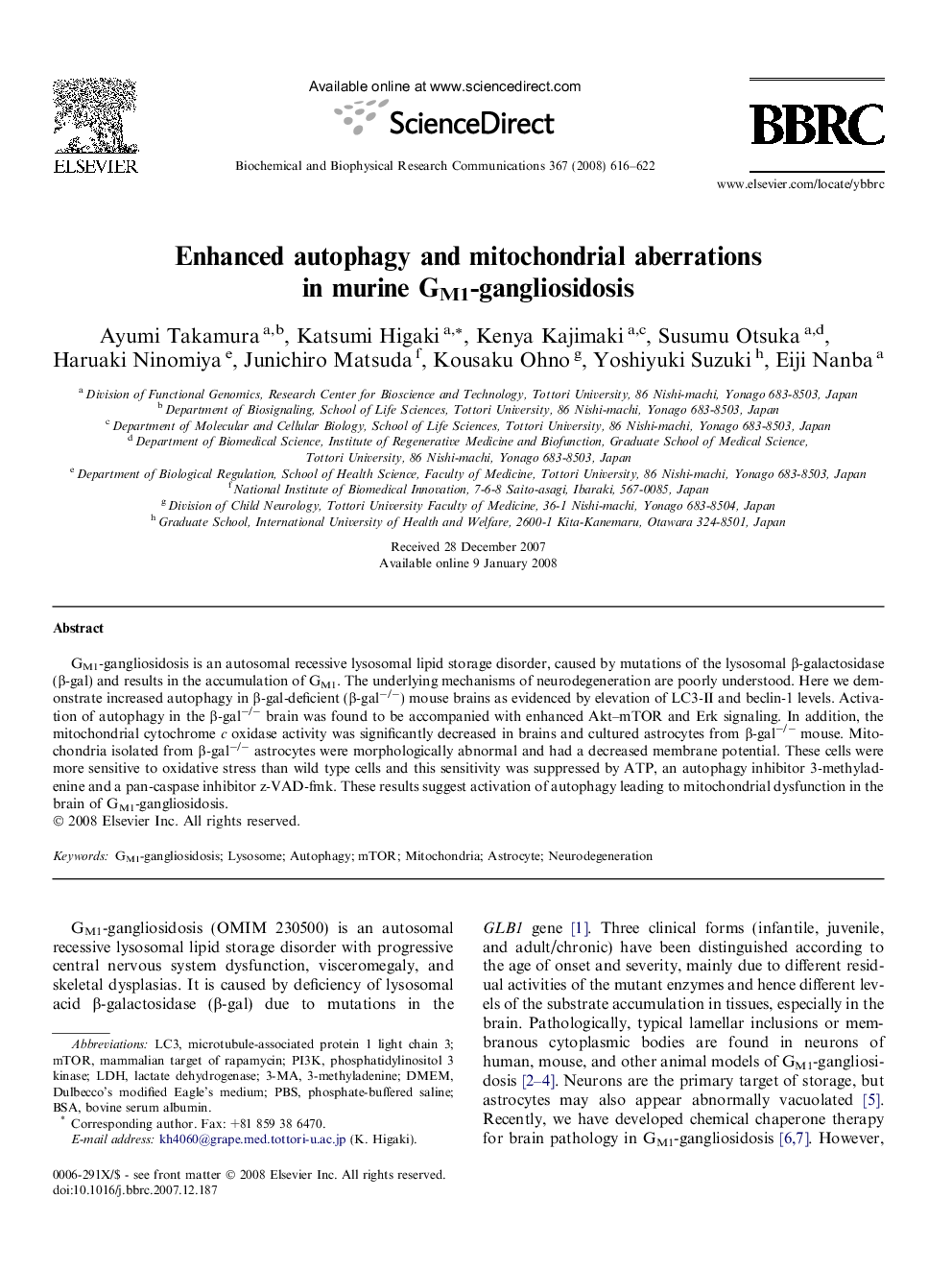| Article ID | Journal | Published Year | Pages | File Type |
|---|---|---|---|---|
| 1936030 | Biochemical and Biophysical Research Communications | 2008 | 7 Pages |
GM1-gangliosidosis is an autosomal recessive lysosomal lipid storage disorder, caused by mutations of the lysosomal β-galactosidase (β-gal) and results in the accumulation of GM1. The underlying mechanisms of neurodegeneration are poorly understood. Here we demonstrate increased autophagy in β-gal-deficient (β-gal−/−) mouse brains as evidenced by elevation of LC3-II and beclin-1 levels. Activation of autophagy in the β-gal−/− brain was found to be accompanied with enhanced Akt–mTOR and Erk signaling. In addition, the mitochondrial cytochrome c oxidase activity was significantly decreased in brains and cultured astrocytes from β-gal−/− mouse. Mitochondria isolated from β-gal−/− astrocytes were morphologically abnormal and had a decreased membrane potential. These cells were more sensitive to oxidative stress than wild type cells and this sensitivity was suppressed by ATP, an autophagy inhibitor 3-methyladenine and a pan-caspase inhibitor z-VAD-fmk. These results suggest activation of autophagy leading to mitochondrial dysfunction in the brain of GM1-gangliosidosis.
